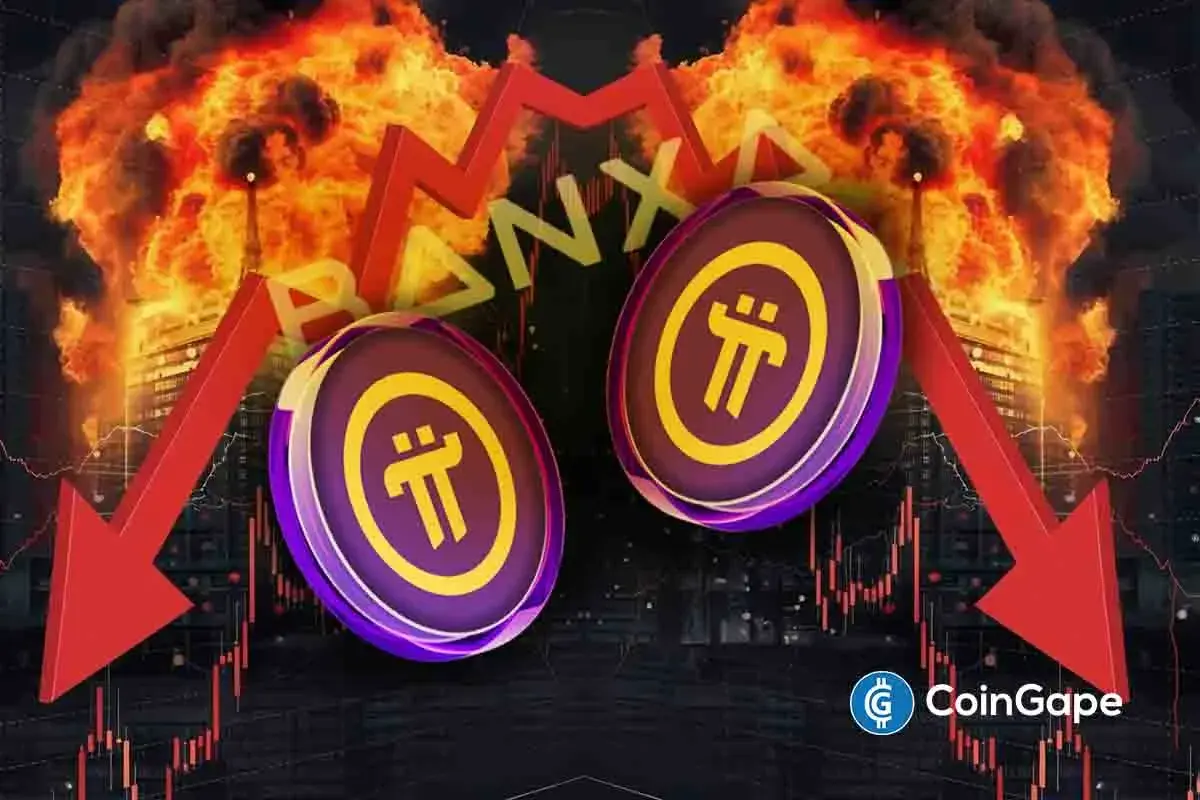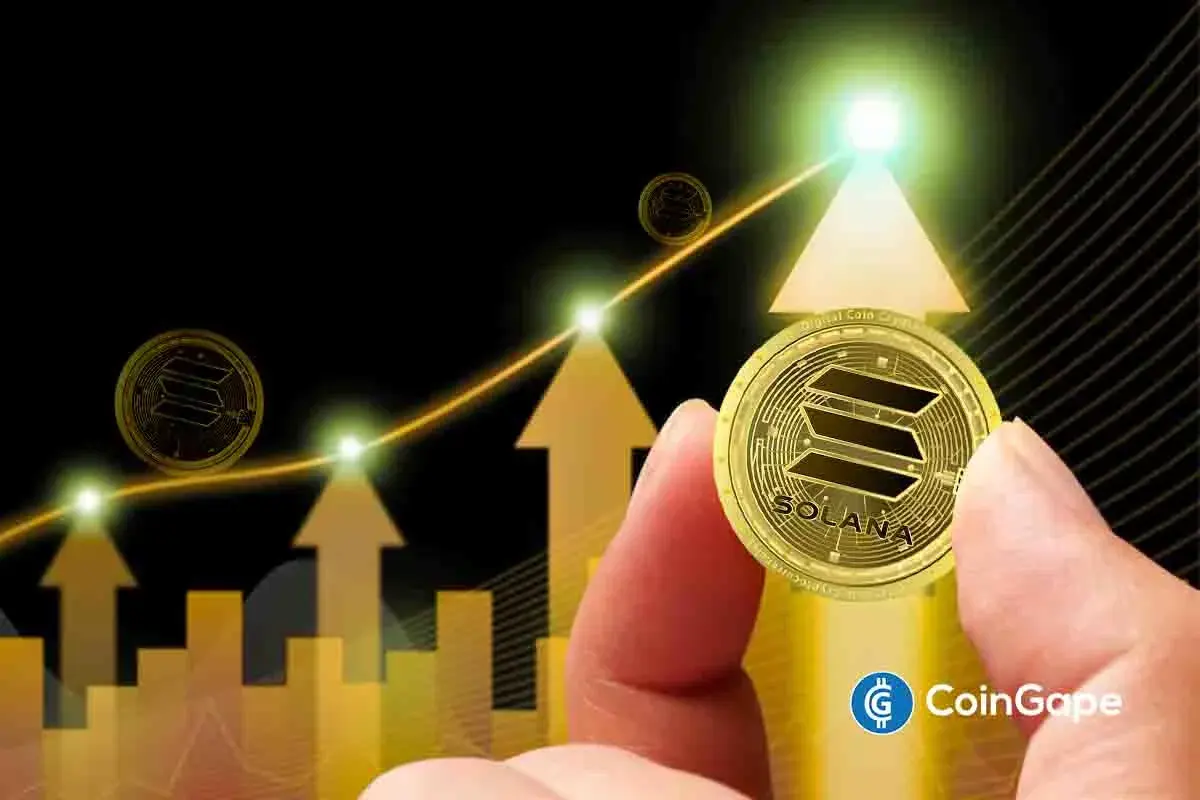Market
Pi Network Performance Underwhelms After Mainnet Launch

Following Pi Network’s much-anticipated Mainnet launch on February 20, cryptocurrency analyst Kim Wong has expressed disappointment in the project’s trading performance.
Despite the significant attention and high expectations surrounding the Mainnet launch, PI’s trading activity has failed to live up to the hype.
Pi Network Performance Falls Short of Expectations
Wong took to X (formerly Twitter) to voice his dissatisfaction.
“Trading in Pi is disappointing as pioneers keep selling and buy orders are small,” he said.
Wong highlighted a lack of significant capital inflows. He noted that while the highest trade volume observed was around 1,000 PI, the average was only a few hundred PI per trade.
Nevertheless, the analyst pointed out a potential silver lining. He explained that as sellers deplete their holdings, the market could see a shift where demand outweighs supply. This could potentially drive the price higher.
“Price will go up when big capital jumps in,” he stated.
Wong also called attention to Pi Network’s Mainnet launch as a significant milestone that sets the stage for future growth. He had previously defended the Pi Network against critics, highlighting its real-world application and scalability.
Nonetheless, Wong’s comments triggered a mixed reaction among Pioneers. Some early adopters emphasized that long-term holders had already locked their supply for years.
“Don’t say pioneers. I’m a first 50 miner to PI. Thank the newbies who came in the last year and bought supply off of others,” a user replied.
Others expressed ongoing skepticism, questioning the fairness of the project’s token distribution.
“The founders had 20 billion coins set aside for themselves correct? They are billionaires and you are what? The only winners are the founders. Just like everyday life nothing changes at the top,” another user posted.
Pi Coin Price Drops Post-Launch
Meanwhile, the lackluster trading performance has impacted the price of Pi Coin (PI), which was already struggling ahead of the launch. Despite the Mainnet launch’s high-profile nature, PI listed on OKX at a floor price of $2. This sparked frustration among users who had hoped for a higher valuation.
“It is obvious that every Pioneer is disappointed with the listing price and not happy at all! What is the point of mining or even having the app if any random person can get 3,000 Pi coins for $3,000 from the CEX!?” wrote Dr. Picoin, a vocal supporter of the project.
He stressed the need for the Pi Core Team to reevaluate the listing price’s consequences and impact on the Pi community. However, he remained hopeful about the project’s long-term prospects.
“I still see massive potential in this project. I have been closely studying the Pi Blockchain, and it functions exceptionally well with great promise,” he noted.
While the Pi community maintains optimism about the project’s potential, the market’s reaction has been less than favorable.

The price has dropped 46% over the past 24 hours. At the time of writing, PI traded at $0.68. In comparison, similar Smart Contract Platform cryptocurrencies have risen by 1.30%, which highlights PI’s underperformance in the market.
Disclaimer
In adherence to the Trust Project guidelines, BeInCrypto is committed to unbiased, transparent reporting. This news article aims to provide accurate, timely information. However, readers are advised to verify facts independently and consult with a professional before making any decisions based on this content. Please note that our Terms and Conditions, Privacy Policy, and Disclaimers have been updated.
Market
Canary Capital Aims to Launch TRON-Focused ETF
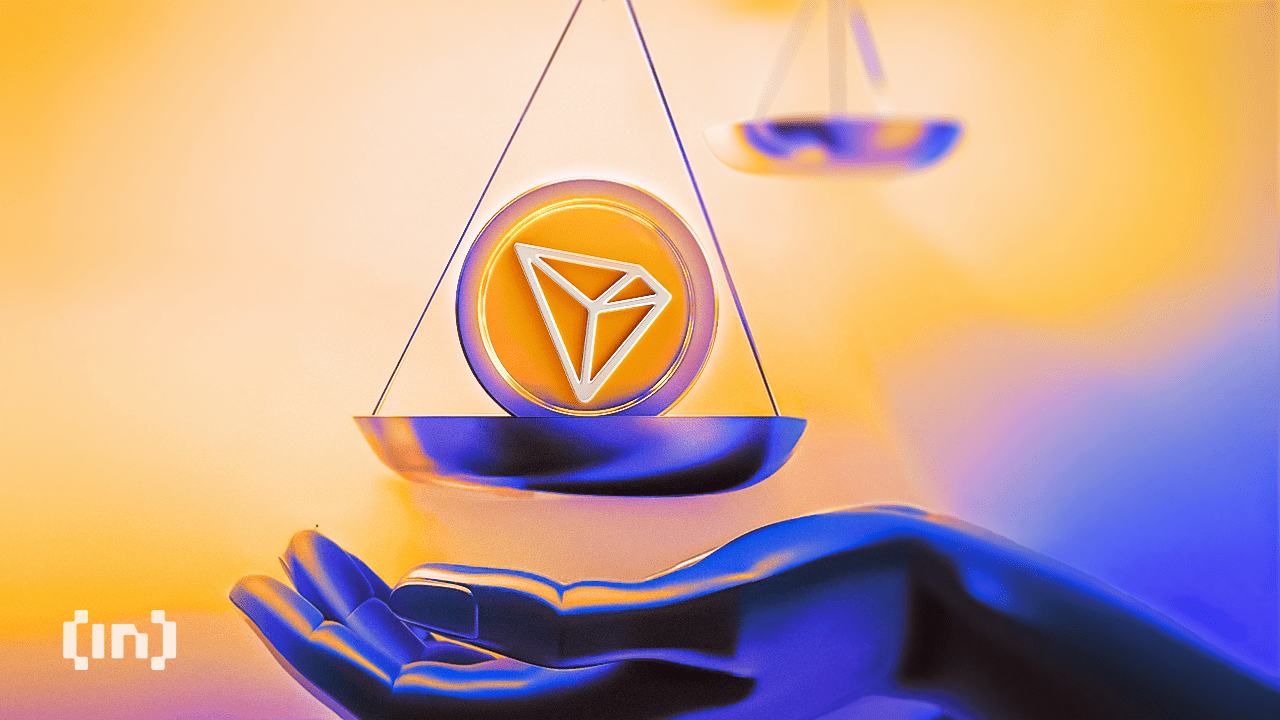
Canary Capital has filed a Form S-1 registration with the US Securities and Exchange Commission (SEC) to launch a spot exchange-traded fund (ETF) focused on Tron (TRX).
The proposal, submitted on April 18, is the first of its kind to offer investors exposure to TRX’s market performance while also providing staking rewards. This sets the fund apart from previous spot crypto ETF proposals.
Canary Capital’s TRX ETF Could Test SEC Stance on Staking Assets
The filing designates BitGo Trust Company as the custodian for TRX holdings and appoints Canary Capital as the fund’s sponsor.
Justin Sun, the founder of Tron, weighed in on the development, encouraging US investors to act promptly. He emphasized TRX’s potential for long-term growth and suggested institutional interest would likely surge if the ETF is approved.
“US VCs should start buying TRX — and fast. Don’t wait until it’s too late. TRX is a price that only moves one way: up,” Sun said on X.
According to BeInCrypto data, TRX is currently the ninth-largest crypto by market capitalization, valued at approximately $22.94 billion.
Moreover, Tron’s blockchain has gained strong traction in stablecoin settlements, ranking second only to Ethereum. Its efficiency in processing fast and low-cost transactions has made it a preferred choice for Tether’s USDT, based on data from DeFiLlama.

While the proposal has created a buzz in the market, questions remain over its chances of gaining regulatory approval. The inclusion of staking within the ETF is a bold move, but the SEC has historically opposed similar features in other crypto funds.
The SEC has flagged staking services within investment products as potential unregistered securities, leading to increased scrutiny.
Due to this, past Ethereum ETF proposals were forced to remove staking components to align with regulatory expectations.
Nonetheless, several firms, including Grayscale, continue to push for altcoin ETFs that incorporate staking or offer broader asset exposure.
Still, regulatory uncertainty clouds the Canary TRX ETF proposal, especially in light of past controversies involving Justin Sun. The network has also faced allegations of being used by illicit actors, claims it has publicly denied.
If approved, Canary Capital’s ETF would mark a historic milestone by combining exposure to TRX with staking rewards. This structure could attract both retail and institutional investors seeking yield alongside market performance.
Disclaimer
In adherence to the Trust Project guidelines, BeInCrypto is committed to unbiased, transparent reporting. This news article aims to provide accurate, timely information. However, readers are advised to verify facts independently and consult with a professional before making any decisions based on this content. Please note that our Terms and Conditions, Privacy Policy, and Disclaimers have been updated.
Market
XRP Consolidation About To Reach A Bottom, Wave 5 Says $5.85 Is Coming
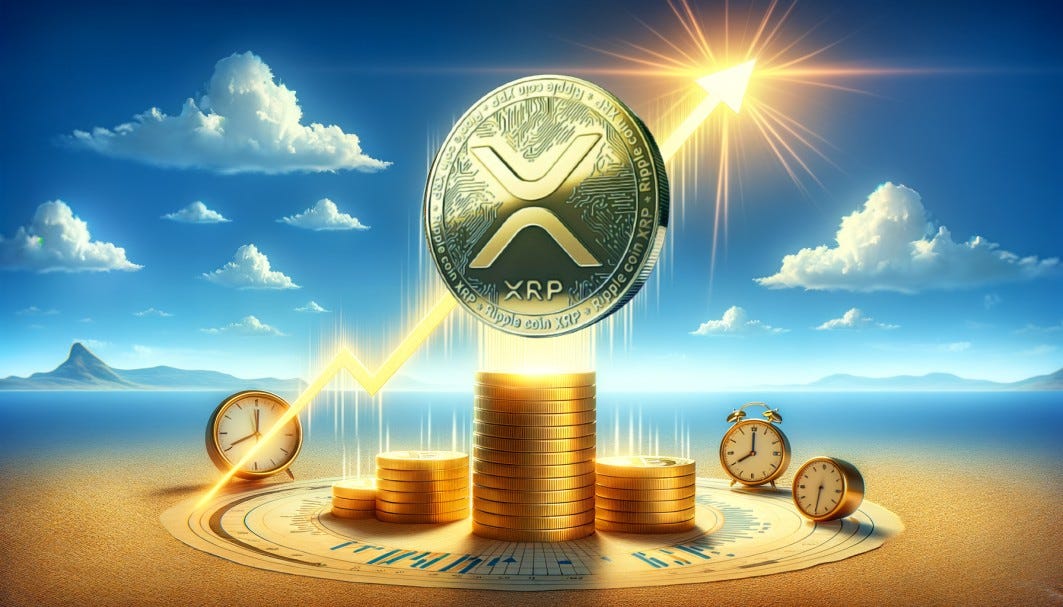
Reason to trust

Strict editorial policy that focuses on accuracy, relevance, and impartiality
Created by industry experts and meticulously reviewed
The highest standards in reporting and publishing
Strict editorial policy that focuses on accuracy, relevance, and impartiality
Morbi pretium leo et nisl aliquam mollis. Quisque arcu lorem, ultricies quis pellentesque nec, ullamcorper eu odio.
XRP is still in consolidation mode after hitting a new seven-year high in January 2025. This consolidation has seen the price drop slowly, but steadily, losing around 40% of its value since then. Currently, bulls seem to have created support for the altcoin at $2, as this level continues to hold even through crashes. Thus, it has created the expectation that the bottom could be close for the XRP price, and this could serve as a bounce-off point.
XRP Price Consolidation Could Be Over Soon
Taking to X (formerly Twitter), crypto analyst Dark Defender revealed that the consolidation that the XRP Price has been stuck in for months now is coming to an end. The analyst used the monthly chart for the analysis, calling out an end and a bottom for the XRP price. According to him, this is actually the “Final Consolidation” for XRP, suggesting that this is where a breakout would start from.
Related Reading
With the consolidation expected to come to an end soon, the crypto analyst highlights what could be next for the altcoin using the 5-Wave analysis. Now, in total, these five waves are still very bullish for the price and could end up marking a new all-time high.
For the first wave, Dark Defender calls it the Impulsive Wave 1, which is expected to begin the uptrend. This first wave is expected to push the price back to $3 before the second wave starts, and this second wave is bearish.
The second wave would trigger a crash from $3 back toward $2.2, providing the setup for the third wave. Once the third wave begins, this is where the crypto analyst expects the XRP price to hit a new all-time high. The target for Wave 3 puts the XRP price as high as $5, clearing the 2017 all-time high of $3.8.
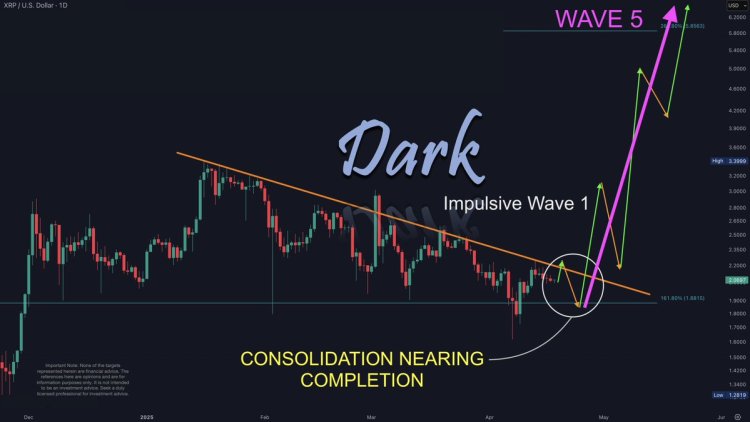
Next in line is the fourth wave, which is another bearish wave. This wave will cause at least a 30% crash, according to the chart shared by the crypto analyst, taking it back toward the $3 territory once again. However, just like the second bearish wave, the fourth bearish wave is expected to set up the price for a final and more explosive Wave 5.
Related Reading
Once the fifth wave is in action, a brand-new all-time high is expected to happen, with the price rising over 100% from the bottom of the fourth wave. The target for this, as shown in the chart, is over $6.
As for the crypto analyst, the major targets highlighted during this wave action are $3.75 and $58.85. Then, for major supports and resistances, supports are $1.88 and $1.63, while resistances lie at $2.22 and $2.30.
Featured image from Dall.E, chart from TradingView.com
Market
Despite an 18% Drop, XRP’s Exchange Supply Hits Lows—Bullish Setup Ahead?

Reason to trust

Strict editorial policy that focuses on accuracy, relevance, and impartiality
Created by industry experts and meticulously reviewed
The highest standards in reporting and publishing
Strict editorial policy that focuses on accuracy, relevance, and impartiality
Morbi pretium leo et nisl aliquam mollis. Quisque arcu lorem, ultricies quis pellentesque nec, ullamcorper eu odio.
XRP has been trading under pressure in recent weeks, losing much of the momentum it built during its late 2024 to early 2025 rally. After reaching highs above $3.40, the asset has experienced an 18.3% decline over the past month, reflecting broader market softness.
At the time of writing, XRP trades significantly below its peak at a price of $2.06, with subdued investor activity and falling market participation across both spot and derivatives markets.
Related Reading
XRP On-Chain Activity Slows, But Price Remains Relatively Stable
Amid XRP’s decline, a CryptoQuant analyst known as EgyHash has recently shared his analysis on the altcoin in a post titled, “XRP’s Market Paradox: With Ledger Activity Dipping 80%, Is a Rebound on the Horizon?”
According to EgyHash, XRP’s on-chain and futures market data presents a mixed picture—declining activity but resilience in price. EgyHash noted that XRP Ledger activity has fallen sharply since December, with the percentage of active addresses down by 80%.
Similar declines have been observed in the futures market, where open interest has dropped roughly 70% from its highs, and funding rates have occasionally turned negative.

He added that the Estimated Leverage Ratio, which gauges average user leverage by comparing open interest to coin reserves, has also dropped significantly.
Despite these indicators pointing to weakening momentum, the altcoin’s price has only declined about 35% from its peak. This is a milder correction compared to other assets such as Ethereum, which has fallen roughly 60% over the same period.
Additionally, the altcoin’s Exchange Reserve has continued to decline, reaching levels last observed in July 2023. Lower reserves typically suggest that fewer tokens are available for immediate sale, a factor that can help support prices during market downturns.

According to EgyHash, this trend, along with relatively stable pricing, could indicate growing long-term confidence in the asset.
Institutional Developments Could Strengthen Market Sentiment
While on-chain metrics remain a focus, institutional developments may also play a role in shaping XRP’s future trajectory. Hong Kong-based investment firm HashKey Capital recently announced the launch of the HashKey XRP Tracker Fund—the first XRP-focused investment vehicle in Asia.
Backed by Ripple as the anchor investor, the fund is expected to transition into an exchange-traded fund (ETF) in the future. The initiative is designed to attract more institutional capital into the XRP ecosystem.
HashKey Capital is launching Asia’s first XRP Tracker Fund—with @Ripple as an early investor.
This marks a major step in expanding institutional access to XRP, the third-largest token by market cap. 🧵👇
— HashKey Capital (@HashKey_Capital) April 18, 2025
HashKey Capital has also indicated that this collaboration with Ripple could lead to further projects, including tokenized investment products and decentralized finance (DeFi) solutions.
Related Reading
Vivien Wong, a partner at HashKey, emphasized the strategic value of integrating Ripple’s network with regulated investment infrastructure across Asia.
Although the altcoin faces near-term pressure, long-term developments, including decreasing exchange reserves and rising institutional interest, may support its recovery as the broader market stabilizes.
Featured image created with DALL-E, Chart from TradingView
-
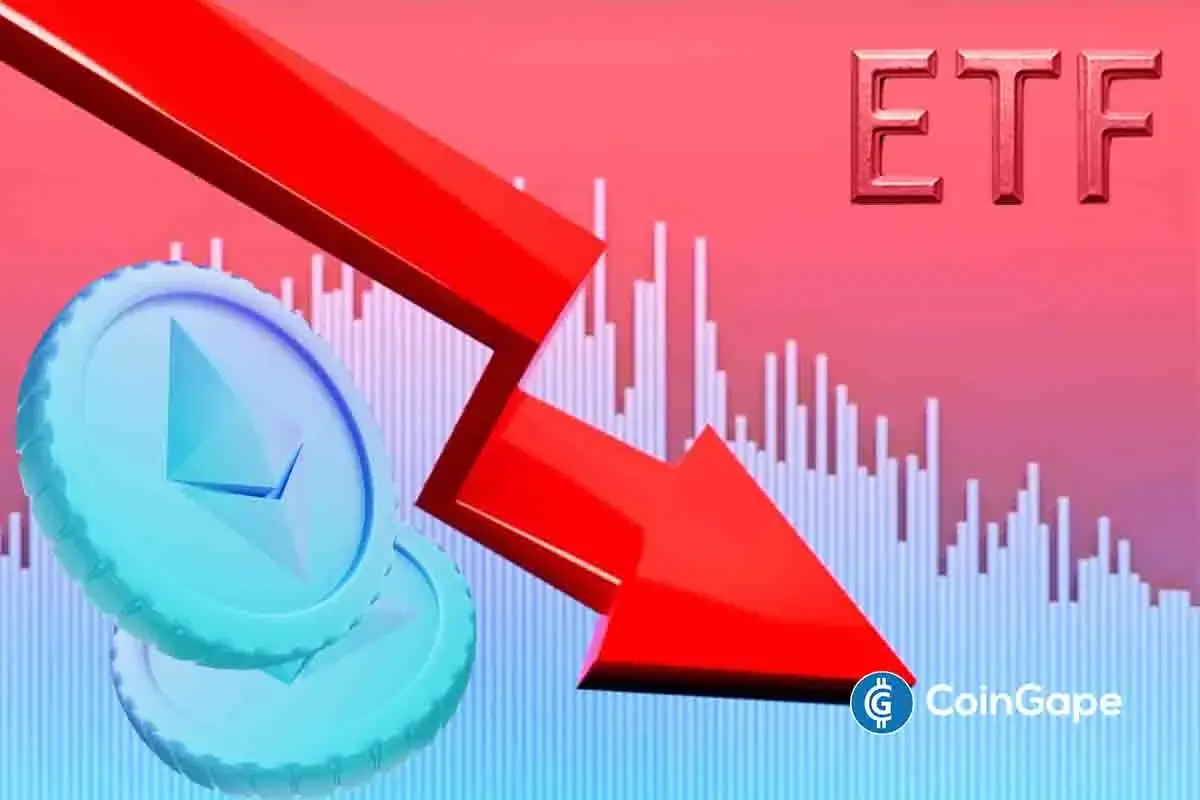
 Altcoin21 hours ago
Altcoin21 hours agoEthereum ETFs Record $32M Weekly Outflow; ETH Price Crash To $1.1K Imminent?
-

 Market14 hours ago
Market14 hours agoMEME Rallies 73%, BONE Follows
-

 Ethereum19 hours ago
Ethereum19 hours agoEthereum Price Stalls In Tight Range – Big Price Move Incoming?
-

 Market24 hours ago
Market24 hours ago100 Million Tokens Could Trigger Decline
-
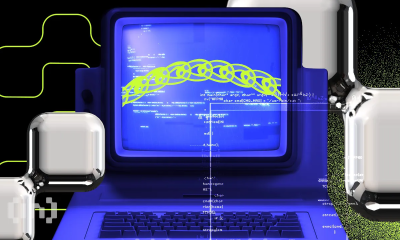
 Market22 hours ago
Market22 hours agoWhy Relying on TVL Could Mislead Your DeFi Strategy
-

 Market20 hours ago
Market20 hours agoAre Ethereum Whales Threatening ETH Price Stability?
-
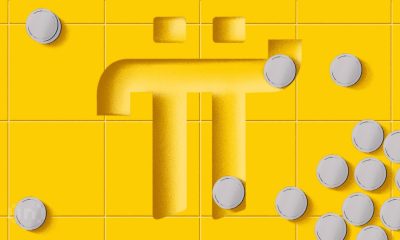
 Market13 hours ago
Market13 hours agoPi Network Roadmap Frustrates Users Over Missing Timeline
-

 Market12 hours ago
Market12 hours agoSolana (SOL) Price Rises 13% But Fails to Break $136 Resistance








